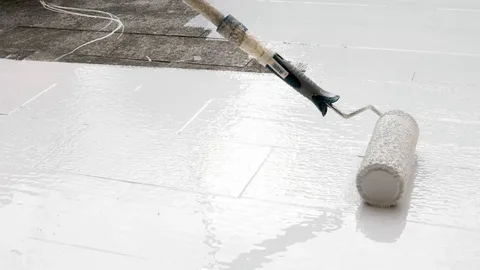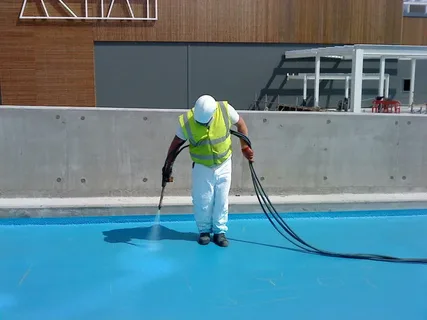Pakistan, with its diverse climate and varying precipitation levels, demands robust solutions for waterproofing in the construction industry. Among the innovative techniques gaining prominence is Chemical Injection Waterproofing in Pakistan. This blog explores the significance of this method and how it is making waves in fortifying structures against water infiltration in Pakistan.
1. Understanding Chemical Injection Waterproofing:
Chemical Injection Waterproofing is a technique that involves injecting specialized chemicals directly into the structure’s substrate. These chemicals react with the existing materials, forming a water-resistant barrier. This method is particularly effective for addressing existing leaks and preventing future water damage.
2. Targeted and Precise Application:
One of the key advantages of Chemical Injection Waterproofing is its targeted application. The chemicals are injected directly into the areas prone to water infiltration, ensuring a precise and effective solution. This method is particularly beneficial for addressing localized issues in basements, foundation walls, and other vulnerable points.

3. Versatility Across Construction Types:
Chemical Injection Waterproofing is versatile and can be applied to various construction types, including concrete and masonry structures. Whether it’s a residential building, commercial space, or an industrial facility, this method offers a tailored solution to combat water-related challenges across diverse projects.
4. Reactive Sealants for Lasting Protection:
The chemicals used in injection waterproofing often include reactive sealants that bond with the existing materials, creating a durable and long-lasting protective barrier. This feature ensures that the treated areas remain resistant to water infiltration over an extended period, providing peace of mind to property owners.
5. Mitigating Structural Damage:
By addressing water infiltration at its source, Chemical Injection Waterproofing plays a crucial role in mitigating structural damage. The method prevents the deterioration of building materials, such as concrete and steel, safeguarding the integrity of the structure and reducing the need for extensive repairs.
6. Rapid Application and Minimal Disruption:
Chemical Injection Waterproofing offers a rapid application process with minimal disruption to daily activities. This makes it an attractive choice for projects where downtime needs to be minimized, allowing businesses and residents to resume their normal routines quickly.

7. Resistance to Environmental Factors:
Pakistan’s climate, with its intense heat and occasional heavy rains, poses challenges for waterproofing systems. Chemical Injection Waterproofing, with its resistance to environmental factors, stands as a reliable solution. It can withstand temperature variations and exposure to UV rays, ensuring its effectiveness in diverse weather conditions.
8. Sustainable and Cost-Effective:
The sustainability of Chemical Injection Waterproofing lies in its ability to extend the lifespan of existing structures, reducing the need for frequent repairs or reconstructions. While the upfront investment may vary, the long-term cost-effectiveness makes it an economically viable choice for many construction projects in Pakistan.
Frequently Asked Questions About Chemical Injection Waterproofing
Q1: What is Chemical Injection Waterproofing, and how does it work?
A1: Chemical Injection Waterproofing is a technique that involves injecting specialized chemicals directly into a structure’s substrate. These chemicals react with existing materials, forming a water-resistant barrier. The method is effective for addressing existing leaks and preventing future water damage.
Q2: Where is Chemical Injection Waterproofing commonly applied?
A2: Chemical Injection Waterproofing is versatile and can be applied to various construction types, including concrete and masonry structures. It is commonly used in basements, foundation walls, and other areas prone to water infiltration.
Q3: How does Chemical Injection Waterproofing mitigate structural damage?
A3: By addressing water infiltration at its source, Chemical Injection Waterproofing helps prevent the deterioration of building materials such as concrete and steel. This mitigation of structural damage safeguards the integrity of the structure and reduces the need for extensive repairs.

Q4: What types of chemicals are used in Chemical Injection Waterproofing?
A4: The chemicals used in Chemical Injection Waterproofing often include reactive sealants that bond with existing materials. These chemicals create a durable and long-lasting protective barrier against water infiltration.
Q5: Is Chemical Injection Waterproofing resistant to environmental factors?
A5: Yes, Chemical Injection Waterproofing is designed to withstand environmental factors. It is resistant to temperature variations, exposure to UV rays, and other weather conditions, making it effective in diverse climates.
Q6: How precise is the application of Chemical Injection Waterproofing?
A6: Chemical Injection Waterproofing offers a highly precise application. The chemicals are injected directly into the areas prone to water infiltration, ensuring targeted and effective coverage. This precision is beneficial for addressing localized issues.

This stage is incredible. The magnificent information uncovers the manager’s excitement. I’m shocked and anticipate additional such mind blowing material.